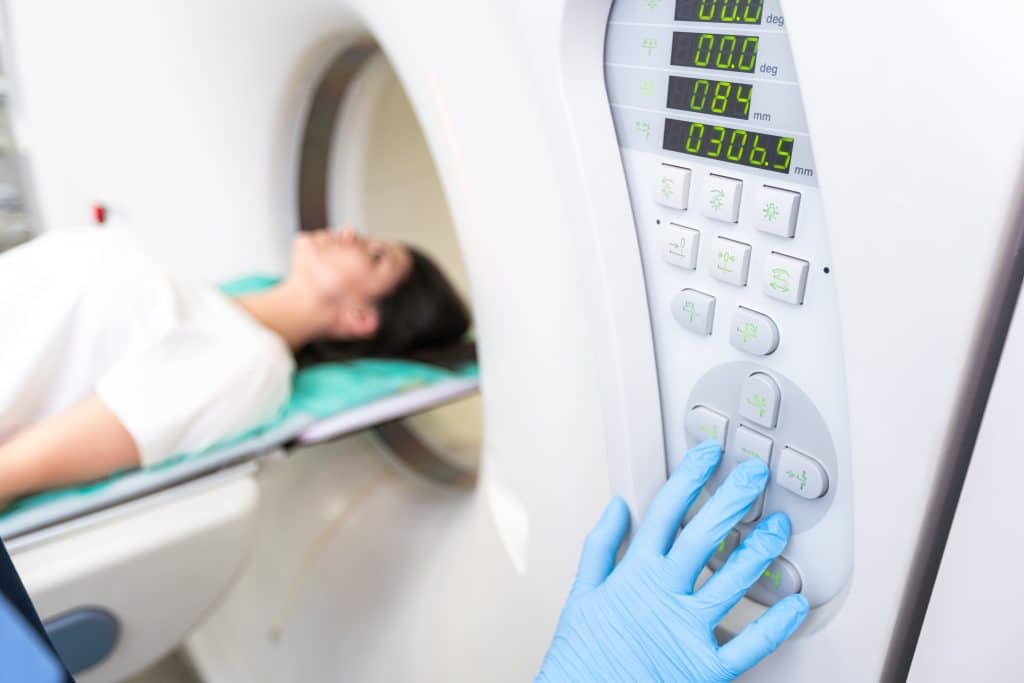Early detection can be a game-changer in the battle against cancer. This disease, characterized by the uncontrolled growth and spread of abnormal cells, has various forms and stages. But one common thread ties them all: the sooner you catch it, the better your chances of successful treatment. This article aims to highlight the early signs of cancer that you should never ignore. By recognizing these symptoms early on, you can take crucial steps toward diagnosis and treatment, thereby increasing your chances of a better outcome. So, let’s delve into the signs that warrant your attention and prompt medical advice.
Contents
The Role Of Early Detection

Early detection of cancer isn’t just a statement that sounds good; it’s a lifesaver. According to the American Cancer Society, the five-year survival rate for some types of cancer, such as breast cancer, can be higher than 90% if detected early. These statistics underscore the importance of being vigilant about any changes in your body and seeking medical advice promptly. Early detection can lead to more effective treatment options and a significantly better prognosis.
But knowing that early detection is crucial isn’t enough. You also need to know what to look for, which brings you to the various early signs of cancer. These signs can be subtle and easily mistaken for less severe conditions. However, being informed about what these symptoms could signify allows you to take proactive steps. Whether it’s scheduling an appointment with your healthcare provider or undergoing screening tests, early action can make all the difference.
Unexplained Weight Loss

When you lose weight without trying, it might seem like a cause for celebration. However, unexplained weight loss can be a red flag for several types of cancer, including lung, pancreatic, and stomach cancers. If you find that you’ve lost more than 10 pounds without a change in diet or exercise, it’s time to consult a healthcare provider. This symptom should not be brushed aside, as it could be indicative of an underlying issue that requires immediate attention.
The question then arises: how much weight loss should be a concern? While there’s no hard and fast rule, a loss of 5% of your body weight within a six-month period without trying could be significant. Medical professionals often use this as a guideline to determine whether further investigation is needed. Tests may include blood work, imaging studies, and possibly biopsies to rule out or confirm a cancer diagnosis.
Persistent Fatigue

Feeling tired after a long day is normal, but what if the fatigue doesn’t go away even after ample rest? Persistent fatigue that hampers your daily activities could be a sign of various cancers like leukemia or colon cancer. Unlike regular tiredness, this type of fatigue tends to be more severe and isn’t alleviated by rest or sleep. If you find yourself feeling constantly drained for no apparent reason, it’s crucial to consult a healthcare provider.
Upon consultation, your healthcare provider may recommend a series of tests to determine the cause of your fatigue. These could range from blood tests to check for anemia to more specialized tests like CT scans or MRIs. The key takeaway here is that persistent fatigue should never be ignored. It could be a symptom of an underlying issue that, when caught early, could be more effectively treated.
Changes In Skin

Skin changes are often dismissed as mere cosmetic issues, but they can sometimes be indicative of a more serious problem. Whether it’s sudden yellowing of the skin, unexplained darkening, or even excessive dryness, these changes could be early signs of skin cancer or other types of cancer affecting internal organs. For instance, yellowing skin could be related to liver issues, while darker patches might be associated with hormonal changes caused by cancer. If you notice any such changes, it’s crucial to consult a healthcare provider for a thorough evaluation.
During your consultation, your healthcare provider may recommend a series of tests, including skin biopsies or blood tests, to determine the cause of these changes. It’s essential to catch these symptoms early, as skin changes can be an external indicator of what’s happening inside your body. Early detection and treatment can make a significant difference in your prognosis, so don’t ignore these signs.
Changes In Bowel Habits In Bladder Function

Bowel habits can naturally vary from person to person, but sudden and persistent changes should not be ignored. Whether it’s constipation, diarrhea, or blood in the stool, these symptoms could be early signs of colorectal cancer. Similarly, changes in bladder function, such as frequent urination or blood in the urine, could indicate bladder cancer. If you experience any of these symptoms for more than a few days, it’s advisable to consult a healthcare provider for further evaluation.
Upon consultation, your healthcare provider may recommend tests like a colonoscopy for bowel issues or a cystoscopy for bladder concerns. These tests can help in early diagnosis and pave the way for effective treatment. The key is to pay attention to your body and not dismiss these changes as mere inconveniences. They could be signaling something far more serious that requires immediate attention.
Unusual Thickening Or Lumps

Discovering a lump or experiencing thickening in parts of your body can be alarming. These symptoms can be early signs of various cancers, including breast, testicular, and lymphatic cancer. While not all lumps are cancerous, any new lump or thickening should be evaluated by a healthcare provider. Regular self-exams can help you become familiar with your body’s landscape, making it easier to identify any new or unusual lumps.
If you do find a lump, your healthcare provider may recommend tests like an ultrasound, mammogram, or biopsy to determine its nature. The importance of early detection cannot be overstated here. A timely diagnosis can lead to more effective treatment options and a better chance of a favorable outcome. So, if you notice any lumps or thickening, don’t hesitate to seek medical advice.
Unexplained Pain

Pain is your body’s way of signaling that something is wrong. While pain can be due to various reasons, unexplained and persistent pain should never be ignored. Whether it’s a persistent headache, bone pain, or any other form of unexplained pain, it could be an early or even late-stage sign of cancer. For example, bone pain could be an indicator of bone cancer, and ongoing headaches could be a sign of brain cancer. If you experience persistent pain, consult a healthcare provider for a thorough evaluation.
During your consultation, your healthcare provider may recommend a range of tests, from X-rays to MRIs or even CT scans, to identify the cause of your pain. These tests can help rule out or confirm a cancer diagnosis and guide the next steps for treatment. Just like the other symptoms discussed, early detection of the cause behind unexplained pain can significantly improve your chances of successful treatment. Therefore, don’t brush off persistent pain as something trivial.
Recognize The Signs And Take Action
Cancer can manifest itself in various ways, and while these symptoms may not always indicate cancer, it’s essential to recognize the signs and seek medical advice if any of them persist. It’s also crucial to remember that early detection of cancer can make a significant difference in your treatment journey. So, don’t hesitate to consult a healthcare provider if you experience any of the symptoms discussed in this article. Remember, while cancer is a serious disease, it is treatable, and the earlier it’s detected, the better your chances of successful treatment. So, take action and prioritize your health by being aware of the signs and symptoms that could potentially save your life.


